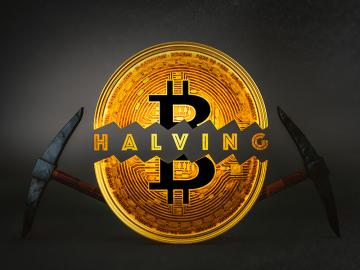
Decoding the DNA of a disruptive organisation
How do some companies manage to execute their current business well without losing sight of the changes happening in the world?
Disruptive companies have a certain DNA which not only helps them to execute their current business well but more importantly, do so without losing sight of the changes happening in the world. It is these characteristics that ensure that they remain a disruptor and not get disrupted. So what are these characteristics? They are speed, focus, flexibility, risk appetite, courage and learning ability.
These attributes were unearthed at a panel discussion 'Surviving success: Breaking the next growth barrier' at the Nasscom India Leadership Forum 2016. Speaking at the session Suresh Narayanan, managing director of Nestle India — a company that has just emerged from a major crisis involving its Maggi brand of instant noodles — said that being fast, focused and flexible are critical. He said speed comes from enabling and empowering the organisation while being focused will enable the business to do what it is good at rather than aping the competition. In search of disruption, he said, Nestle would rather look at thousands of options it has in the nutrition, food and beverage space rather than looking at air purifiers its competitor has recently forayed into successfully. Flexibility, he said was another important attribute as product knowledge and market outcomes are changing rapidly. Jason Goldberger, President, Target.com recalled how his company, a retailer which runs over 1800 larger format stores, had to adapt quickly twice in a short span of time. When Walmart began to expand rapidly, Target too moved quickly launching many large format stores. But soon Amazon came along and their strength — ability to open large stores very quickly — became its weakness.
Rishad Premji, Chief Strategy Officer at Wipro said risk taking was a critical behavioural attribute of a disruptive company. Companies have to try different things. He said Wipro is running a parallel organisation that looks at new opportunities in digital and strategic design space. Risk taking, he however added, should be prudent. While trying different things it is essential to set clear milestones and drop a project if they are not attained. Ability to cannibalise in the short term to gain in the long term does help, he added.
Being courageous and installing an ability to learn were the two other characteristics that Ravi Venkatesan, former Microsoft executive and present chairman of Bank of Baroda added to the list. He said courage is a quality that is rarely seen today.
So what should companies do differently to become a disruptor?
They should hire the best talent, says Goldberger. Venkatesan quickly adds that they should also ensure that people who are angular in their thinking are retained and not weeded out as it happens in most companies.
"It is very rare to be surprised by disruption," Venkatesan added. Companies like Kodak and Nokia knew it was coming and still failed. Here leadership has a critical role to play. "Leadership without ego is critical', says Nestle's Narayanan. Typically organisations suffer from a common disease — not introspecting strongly, he added. Leadership has a critical role to play as disrupting yourself when you are doing very well is very difficult, said Premji.
Skunk works, it was suggested, was a good option where new experiments happened while the company carried on with its usual business. Some companies, it was said had the CEO to look at the future while the COO looked at the quarter to quarter operations. "Two-speed organisations — one dealing with cash cow and the other doing experiments works well," said Venkatesan. All of them agreed that at some point the two needed to integrate.
The panelists also agreed for the need of a strong Board of Directors. If a company gets disrupted, it is the Board (and failure of governance) that needs to be blamed, said Venkatesan. Chances of disruption are higher if the company has a 'rubber stamp' Board.
How does a company manage to experiment and invest resources when the focus is on quarterly results? Premji said that the 'quarter se quarter tak' phenomenon can be handled through better communication. "Setting right expectation is critical', he added.
Ultimately all companies face two inevitable risks. One, try experimenting to remain relevant and in the process fail or not do anything and get disrupted by competition. Tough choices indeed.















